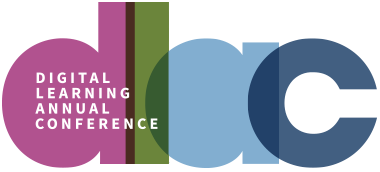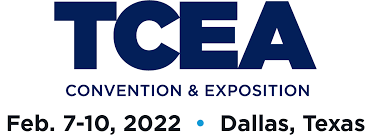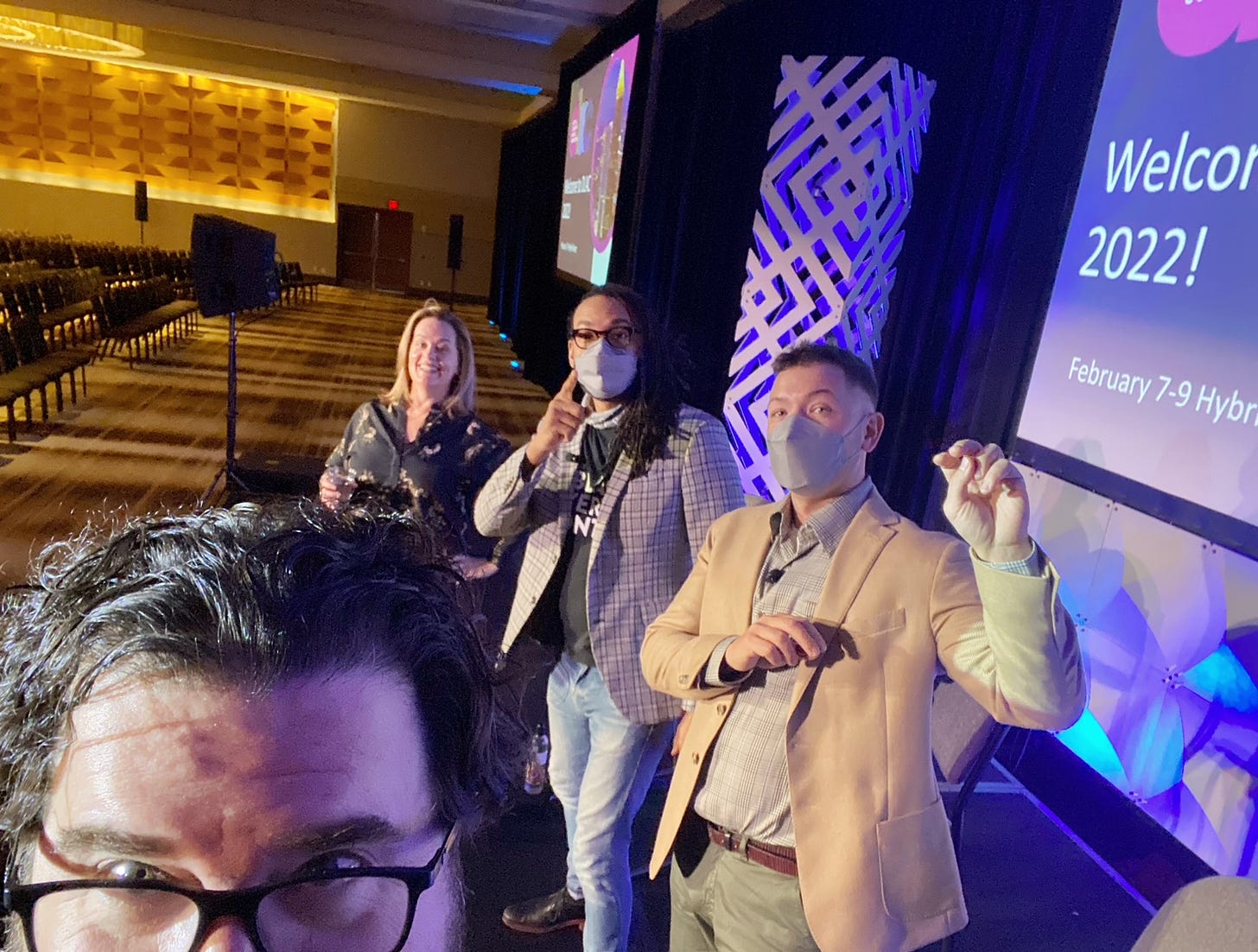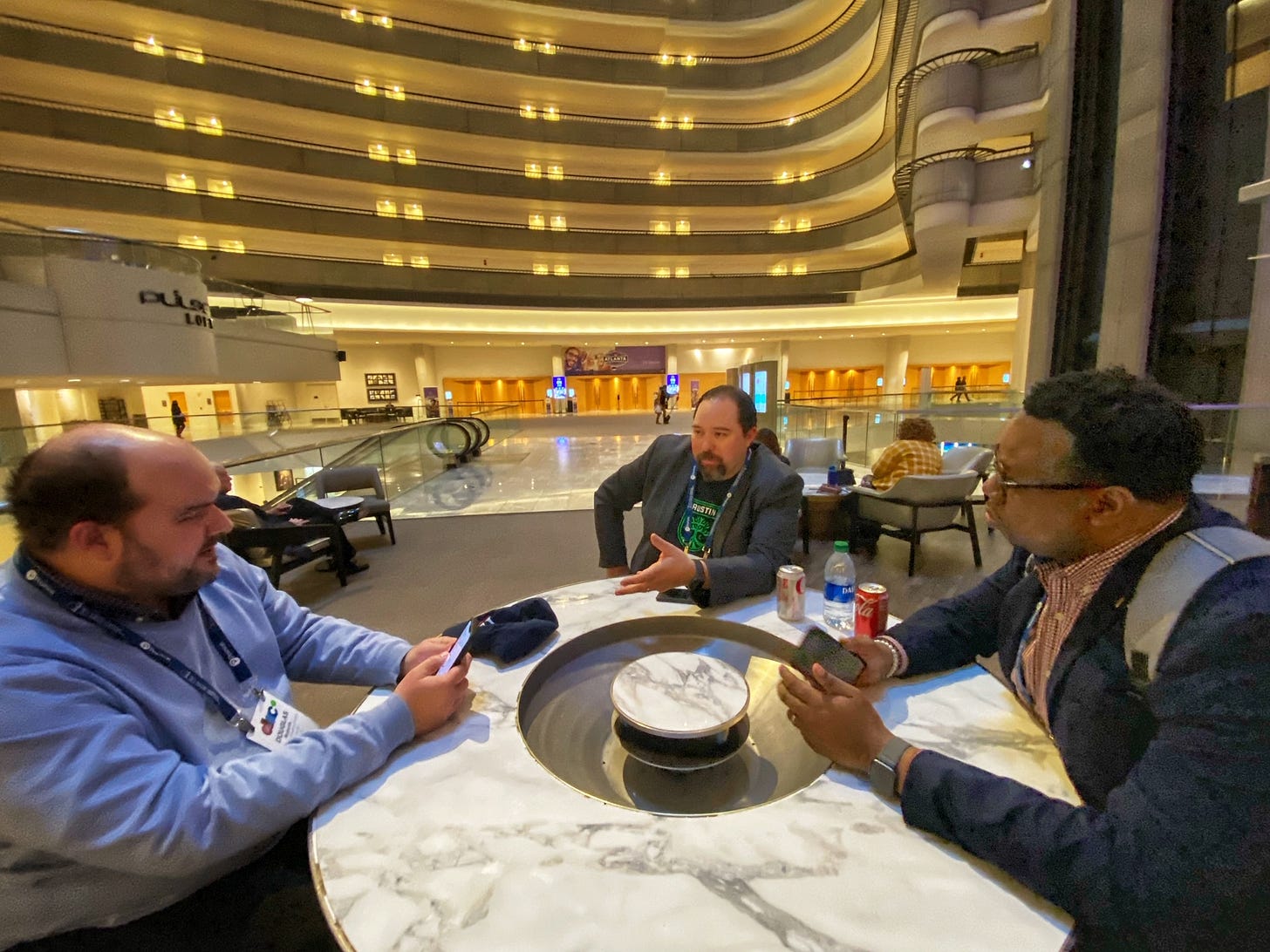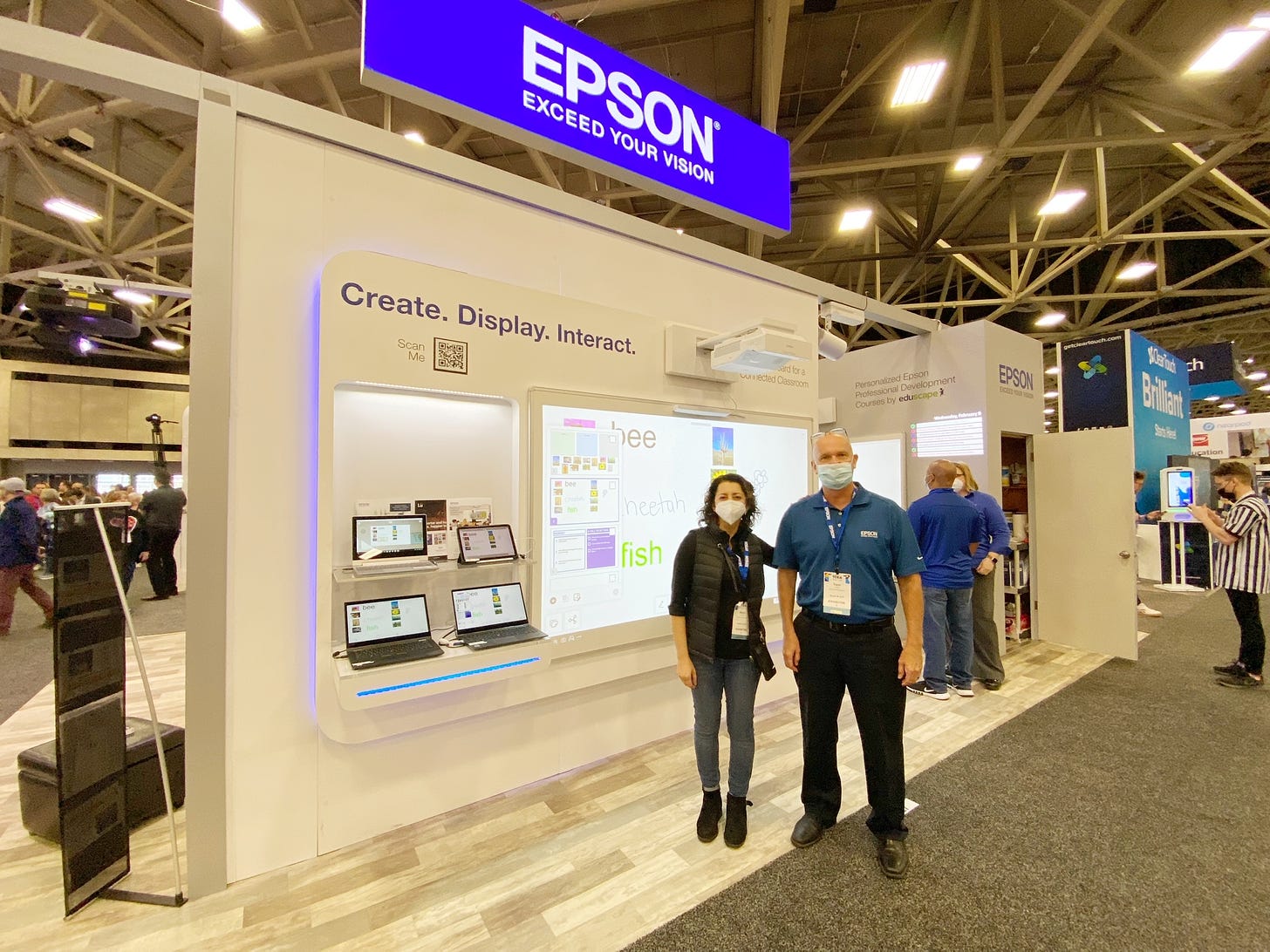Well, that was quite a week. Multi-city trips were pretty rare even before the pandemic and I’m still in recovery mode a bit, but it was terrific to once again be back in action: First in-person session moderation; First sponsor reception; And first Texas dueling piano bar in two years!
It was also my first time attending the Digital Learning Annual Conference (DLAC), a four-year-old event held this time each year in Atlanta. I had the pleasure of moderating a session entitled The Future of School: How Has the Pandemic Become a Catalyst for Change? Panelists included Tom Vacanti, from the City School District of Albany (NY), Shomari Jones from the Bellevue School District (WA), and Amanda Kocon from Edmentum. Like most conversations these days, it was stark and frank but full of great insights and glimmers of hope. I will try and wrestle the footage from the DLAC folks and will post if I can.
I also had a chance to speak with DLAC founder John Watson, from the Evergreen Education Group, which for 20 years has been a leading consulting and advisory firm serving school districts, state agencies, foundations, and companies in the K-12 digital learning field. We talked about managing an event during a pandemic, innovations discovered during the process, where he sees the future of edtech in-person professional development, and what industry sponsorship should expect. You can have a listen and read it in detail here:
"What we feel is that for the person who is wanting to go to DLAC for the content, you can do that really well online. We still want some interaction; we're trying to still have online sessions where there's a minimum text chat, if not having some audio and video chat. We have not found any online platform that replicates the networking." —John Watson
I was also able to capture three EdTech industry influencers in their natural habitat in the hotel lobby—IEI’s Doug Roberts, and Future Ready’s Undisrupted podcasters Dr. Adam Phyall and Carl Hooker—to discuss their take on the state-of-play of industry events. The full conversation, which includes ensuing hilarity, and the transcript are below:
"I think this was already changing before the pandemic. I think the days of the 350 different vendors on the giant floor, I just don't see that as a cost add." —Carl Hooker
Then it was off to Dallas to catch the second half of the 2022 Texas Computer Education Association, annual conference (TCEA). Hard to believe this would be my fifteenth year in attendance and that there wasn’t one last year. This meant back to traipsing the exhibit hall and booth meetings including a good big picture conversation with Remi Del Mar, senior product manager responsible for Epson’s visual displays amongst others. And while I was able to collect several trends and insights (if not much new interesting tech), conversations still revolve around the meta idea of people’s return to events and what has, or more importantly should, change. Look for product and industry announcements in my Big Deal post at the end of this month.
My immediate takeaways:
In-person events are back. They may be strange for a while—masks, knucks, awkward hugs, and alarming sneezes will be a thing for a bit. But there is zero doubt that networking needs to be done face to face.
How those events are held is another thing. If you listen to the round table discussion, the question of scale looms large. My take? Kill the giant keynotes and mammoth booths. Increase the smaller sessions and roundtables. Include the vendors in session presentations. Their input is valuable and a necessary part of any district’s tech implementations. These events have always pretended to be church and state when it comes to content. I say educators and administrators know the deal and aren’t worried about being fooled. Why should the industry worry?
Hybrid aspects of events should and will continue to evolve. There should be a Netflix-style platform of recorded events and conversations that attendees can refer to along with annotated executive-summary style annotated transcripts. Follow-up webinars, or whatever you want to call them, should be scheduled throughout the year. Event hosts should also develop a communications platform between vendors and buyers so that when meeting face to face, everyone involved can get right into the nitty-gritty.
What do you think? I encourage any and all comments! And I encourage you to share and subscribe!
Finally, to my delight and my children’s bemusement and dismay, the Hogan report now has a TikTok account! Playing around with it as a reporting tool. The creation and editing tools are powerful! Have a look. Would you watch live TikTok interviews?



